Your property is among the most expensive investments you have. However, its value can be destroyed by termites over time by weakening its foundation.
How to attract termites? Termites are highly attracted to things with cellulose content, like woods and unexposed areas with damp surfaces such as basements, attics, and crawl spaces. They build colonies by burrowing wooden structures and creating mud tubes into the ground to avoid air exposure, which kills them quickly.
By reading this guide, you will know more about other things that attract termites. We will also share the signs of the infestation and ways to get rid of them.
Table of Contents
What Attracts Termites in the House?
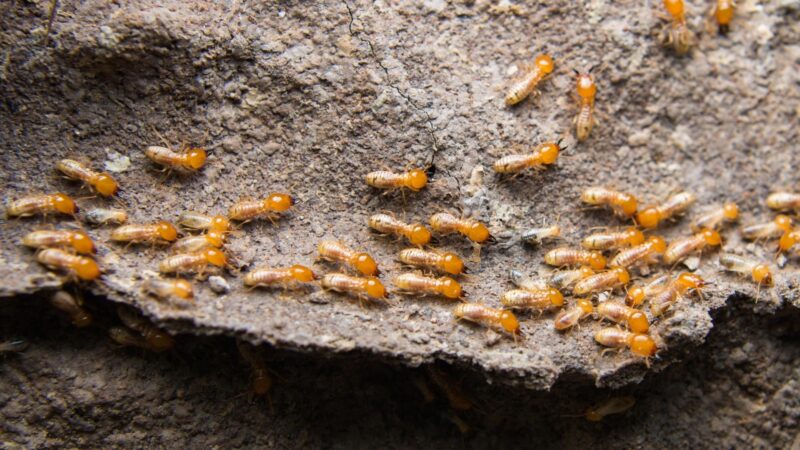
Termites are particularly attracted to items with cellulose content, such as sugar cane, cardboard, dead trees, bamboo, and wooden structures.
On top of that, mulch, chips, moisture, heat, and light also lure these pests into your property.
Does Mulch Attract Termites?
In a sense, mulch attracts termites but not by the material itself. These pests are attracted to the deepness of the mulch spread, creating an ideal environment with heat and moisture.
The mulch also serves as an ideal shelter for these pests, protecting them from harsh weather.
Are Termites Attracted to Light?
Like other nocturnal pests, termites swarm late afternoon or early evening around light sources.
This includes motion lamps, porch lamps, and even the reflection of light from within. A swarm of alates is also a common sight around utility lights.
Do Wood Chips Attract Termites?
Wood chips attract termites since it gives them a better way to travel into the loose layer without putting any effort into digging or making tunnels for travel means.
Does Cardboard Attract Termites?
Termites are highly attracted to cardboard because of the cellulose content it provides. These pests thrive through the cellulose they eat from these items.
Does Sugar Cane Mulch Attract Termites?
Sugar cane mulch retains much water, which termites need to thrive. It also contains sugar which is among the favorite foods for these pests.
Are Termites Attracted to Heat?
Termites prefer warm living conditions. This is why these pests are often found in homes during winter to seek warmth to survive the frigid conditions.
Are Termites Attracted to Moisture?
Moisture attracts termites to your house. So, if you’ve got leaky pipes, poor airflow, and improper drainage, it will not be surprising to spot termites in your place. These conditions create moisture that allows termites to thrive.
Do Dead Trees Attract Termites?
Termites build colonies on damp or dry wood containing little moisture, found in dead trees. This provides ideal shelter and food, allowing them to thrive in your area.
Does Bamboo Attract Termites?
Bamboo contains cellulose, which is food to many insects and pests, including termites. Termites considered this as their food source and still consume it up to this day.
Do Termites Attract Ants?
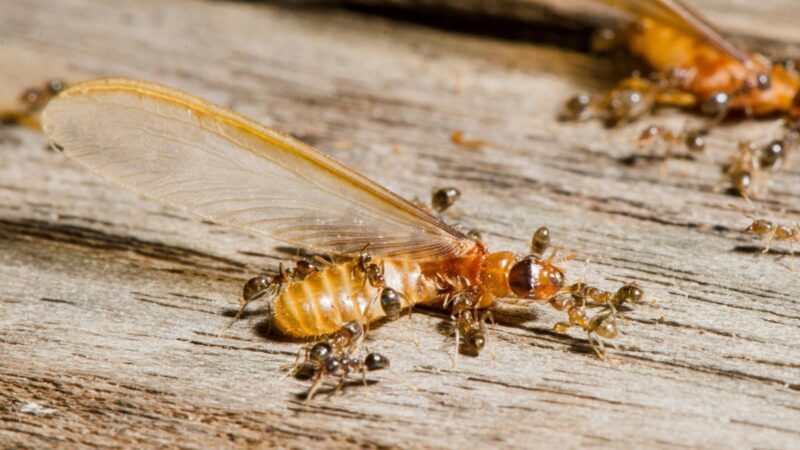
Termites have several predators, and the most recognized is the ant. Ants love eating termites since these pests provide plenty of protein. On top of that, it is also their way of reducing competition for resources.
Are Ants Enemies of Termites?
Ants and termites are natural enemies. This is because these two have the same caste system and need the same environment to thrive, which often leads to the division of resources.
Why Are Flying Termites Attracted to Light?
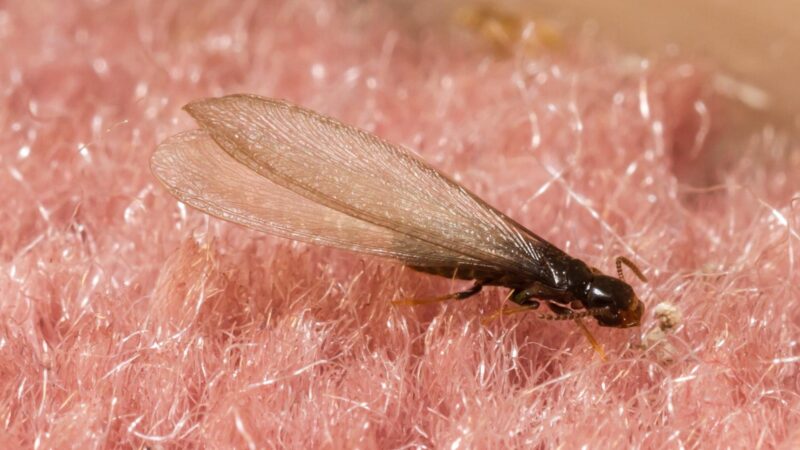
Termites usually fly towards light sources, set on a much higher ground when feeling threatened. For these pests, light serves as a safety signal and a place of solace against any threat.
What Are the Signs of Termites in Your Home?
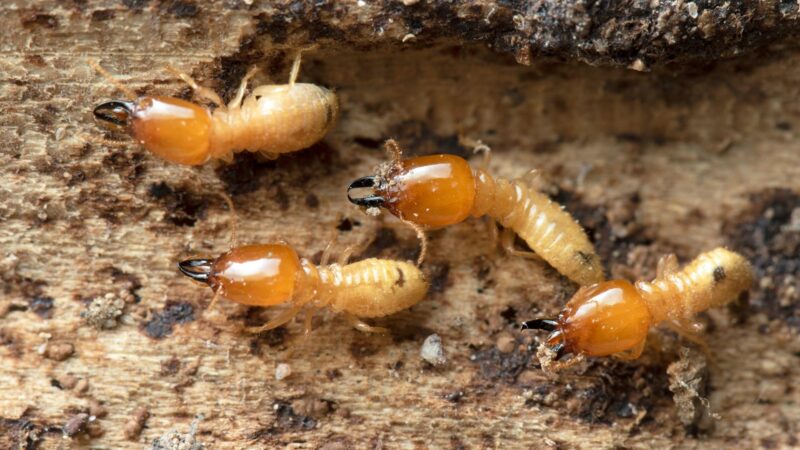
If you think you have termites in your home, you can look for the following signs in your home:
- Mud tubes on walls. One of the signs of termite infestation in homes is seeing mud tubes on walls made from mud and dirt. The mud tubes are about the size of a coin, typically seen in both interior and exterior walls of a structure.
- Papery-sounding wood. Termites eat wood inside out, leaving only a flimsy veneer of paint or wood. So, when you tap or hit on areas with termite damage, it will sound papery or hollow since some parts of the wood have been consumed.
- Seeing discarded wings or termite swarmers (flying termites or alates). Another sign of termite infestation is seeing termite swarmers or alates and discarded wings in your area. You may also spot some scrapped wings on the floors and window sills.
- Termite droppings. After devouring wood, termites usually leave behind brown fecal mounds, which is another sign of termite infestation. These fecal matters are typically discovered underneath the plagued wood.
- Hard-to-open door or window. Since termites consume wood, their droppings make a kind of environment that traps moisture and heat. This makes timber bubbles, making it more challenging to close and open the infested doorways or windows.
How Can I Get Rid of Termites?
One of the best ways to effectively get rid of termites is to apply termite-killing products, such as Bonide Insect Control Granules and Spectracide Termite Killer.
Note: For the best result, always read the product’s label for correct usage.
You can also use the following products for the elimination of termites:
Termite Baits
Using termite baits is another proven method of eliminating termites. These baits are put around your home’s foundation, attracting the foraging pests and eventually killing them.
The slow-acting poison interrupts the natural growth of termites, exterminating them as they molt. Due to the poison’s delayed action, the infected termites will carry the detrimental insecticide to their colony and disseminate it to other termites.
Beneficial Nematodes
Beneficial nematodes are tiny roundworms that are innately parasites to various pests like termites. These nematodes excavate into their host, discharging a symbiotic bacteria that poisons the blood of termites, eradicating them in just a matter of days.
Beneficial nematodes can be found in your local stores or online. To use, just apply a mixture of potting soil, nematodes, and cold water to the plagued areas of your lawn and garden.
Essential Oils
Essential oils, such as neem and orange oil, are hated by termites due to their sharp, fruity scents. These items also inhibit their capability of laying eggs and shedding skin.
That’s why whenever they sense the scents of essential oils, they frequently run away. To use, just blend some drops of dish soap into two cups of water and ten drops of your preferred oil.
Shake the mixture well and start spraying it on the infested items.
Boric Acid
Boric acid works best in dehydrating termites and shutting down their nervous system. To use, just mix one cup of water and one teaspoon of boric acid in a spray bottle.
After that, shake the solution gently until the boric powder is dissolved. Once done, spray the solution to crevices, cracks, floors, walls, and other infested areas.
Make sure to repeat the step for up to five days and look for further termite signs or damages before halting the application.
Diatomaceous Earth
Food-grade Diatomaceous Earth is another item that you can use to get rid of termites. This item works by penetrating the exoskeleton of the pests, dehydrating them in the process.
To apply, just sprinkle the DE powder around the affected areas, and wait for the result.
Related: How to Get Rid of Termites in the Yard? | Information and Facts
Are Termites Harmful?
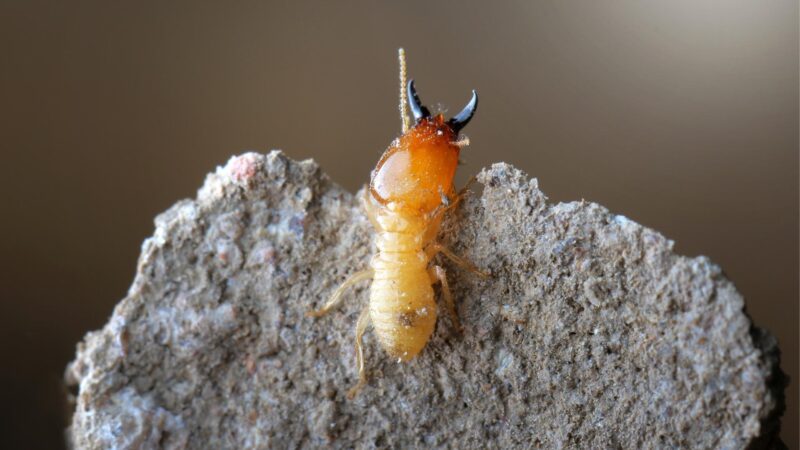
Termites are among the most harmful pests since they can incur huge property damage if not treated right away. However, these pests don’t sting, contaminate food supplies or bite.
What Do Termites Hate?
According to Clemson University scientists, termites dislike the scents of geranium, cedarwood, and tea tree oil. The smells of clove buds, garlic oils, and cinnamon are also known to repel termites.
Do Termites Ever Leave On Their Own?
Termites leave on their own. However, they may only leave after destroying your home. This is why termite treatment is a must to stop possible re-infestation.
Summary
Termites can cause huge structural damage. That’s why you must act right away once you detect the presence of termites in your home.